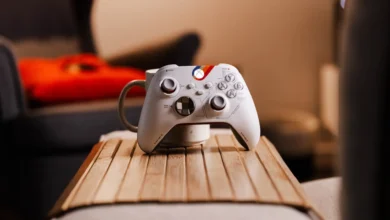Meta’s Settlement in the Haptic Feedback Tech Lawsuit: Implications for VR Innovation and Intellectual Property Rights

In a recent development that has reverberated across the virtual reality (VR) industry, Meta, formerly known as Facebook, has reached a settlement in a lawsuit concerning haptic feedback technology. The lawsuit, which alleged infringement of patents related to haptic feedback in VR devices, has significant implications for the future of VR innovation, intellectual property rights, and the competitive landscape of the tech industry. In this essay, we explore the details of Meta’s settlement in the haptic feedback tech lawsuit, examine its implications, and discuss the broader implications for VR technology and the companies involved.

The lawsuit against Meta centered around allegations of patent infringement related to haptic feedback technology, which enhances the immersive experience of VR by providing tactile sensations to users through vibrations, force feedback, and other sensory cues. The plaintiff, a technology company specializing in haptic feedback solutions, claimed that Meta’s VR devices, including the Oculus Rift and Oculus Quest, infringed upon its patents and sought damages and injunctive relief to prevent further infringement. Meta denied the allegations but ultimately chose to settle the lawsuit rather than engage in protracted litigation.
The terms of Meta’s settlement in the haptic feedback tech lawsuit have not been disclosed publicly, but it is likely that the company agreed to pay a substantial sum in damages and royalties to resolve the dispute. Additionally, Meta may have entered into licensing agreements with the plaintiff to use its patented technology in its VR devices, thereby avoiding future legal entanglements and ensuring continued access to key innovations in haptic feedback. While the specific details of the settlement remain confidential, its impact on Meta’s bottom line and its ability to innovate in the VR space cannot be understated.
From a legal perspective, Meta’s settlement in the haptic feedback tech lawsuit underscores the importance of intellectual property rights and the risks associated with potential infringement claims in the tech industry. Patents play a crucial role in protecting the investments of innovators and incentivizing research and development in emerging technologies such as VR. However, the rapid pace of technological advancement and the complexity of modern inventions can sometimes lead to disputes over patent ownership and infringement, as seen in the case of Meta and the haptic feedback technology.
Moreover, Meta’s settlement in the haptic feedback tech lawsuit highlights the competitive pressures and strategic considerations facing companies in the VR market. As one of the leading players in the industry, Meta faces intense competition from rivals such as HTC, Sony, and Microsoft, all of whom are vying for market share and mindshare in the burgeoning VR ecosystem. In this highly competitive landscape, intellectual property rights can serve as valuable assets that confer a competitive advantage and enable companies to differentiate their products and services from those of their competitors.
Beyond the legal and competitive implications, Meta’s settlement in the haptic feedback tech lawsuit raises broader questions about the future of VR innovation and the role of intellectual property in shaping the trajectory of the industry. While patents are essential for protecting innovation and incentivizing investment, overly broad or frivolous patents can stifle competition and impede progress by limiting the ability of companies to build upon existing technologies and explore new avenues of development. As VR continues to evolve and mature, it is essential for stakeholders to strike a balance between protecting intellectual property rights and fostering an environment conducive to innovation, collaboration, and growth.
In conclusion, Meta’s settlement in the haptic feedback tech lawsuit serves as a reminder of the importance of intellectual property rights and the risks associated with patent infringement claims in the tech industry. While the specific terms of the settlement remain undisclosed, its impact on Meta’s operations and its ability to innovate in the VR space is likely significant. Moving forward, it is essential for companies in the VR industry to navigate the complexities of intellectual property law thoughtfully and responsibly, ensuring that innovation can thrive while respecting the rights of inventors and creators. Only by striking this delicate balance can the VR industry continue to push the boundaries of what is possible and deliver transformative experiences to users around the world.





